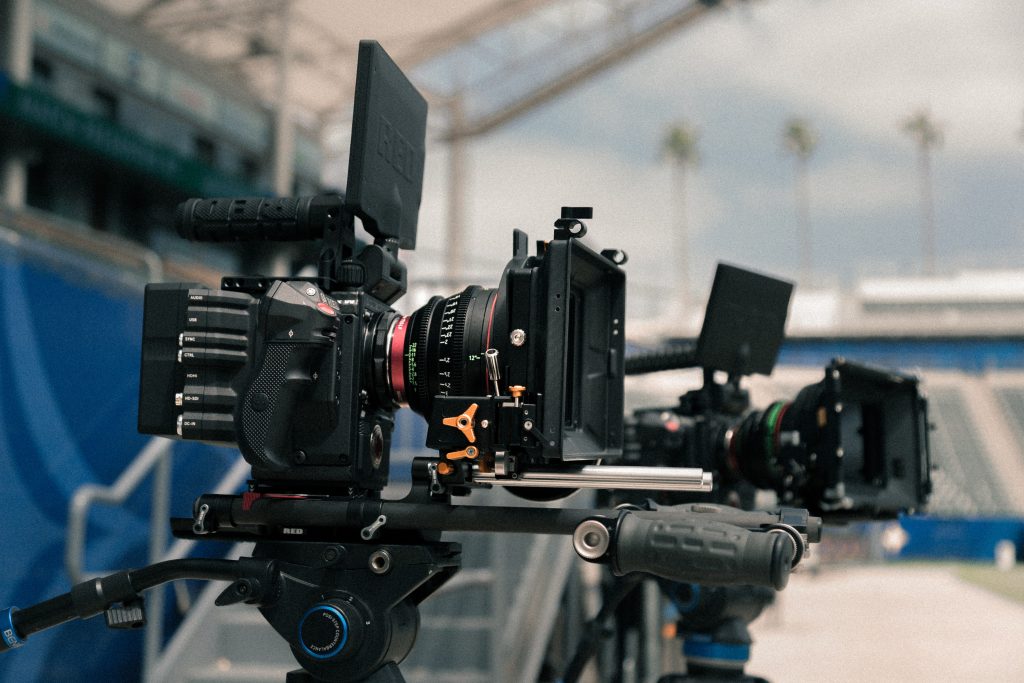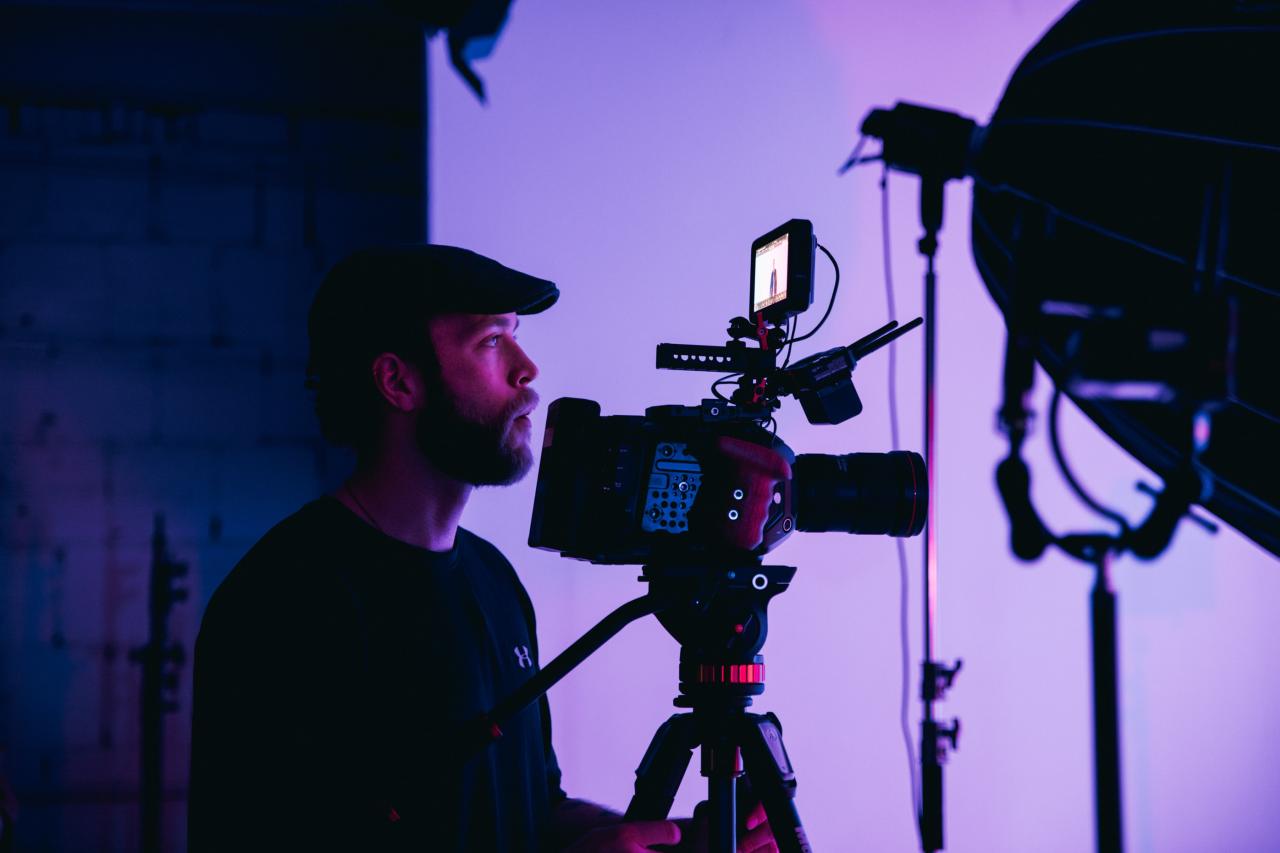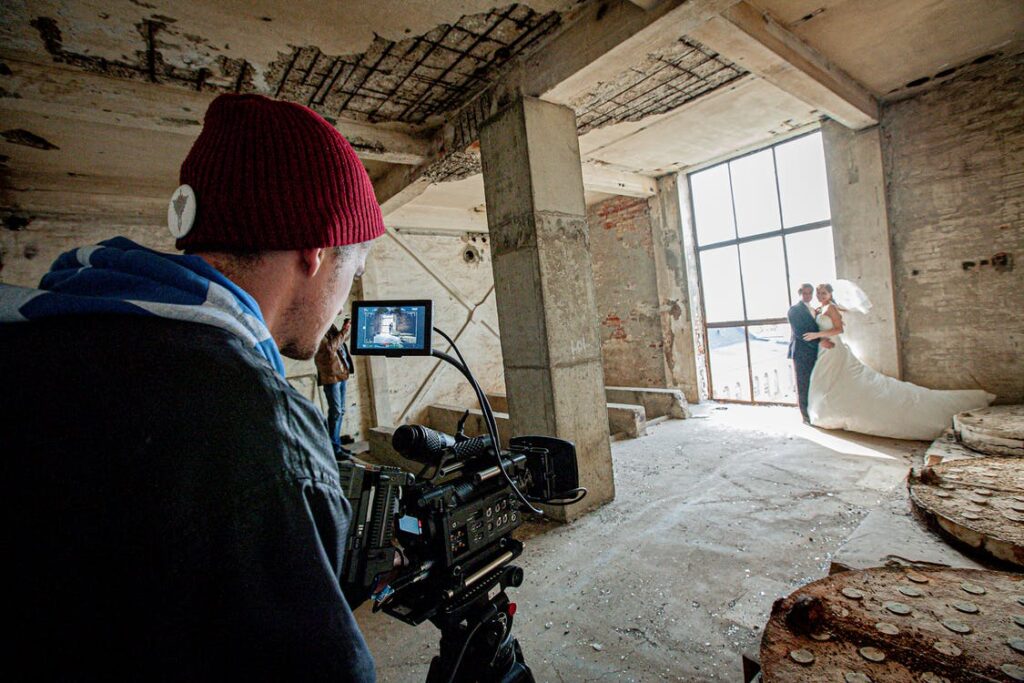There was once a time when only experts with expensive equipment could create quality videos. The advent of the internet and cellphones, however, has made video production accessible to almost anybody, regardless of prior skill. Learn the fundamentals of video production from us if that's something you're interested in doing. Check out this article for a comprehensive introduction to videography for newcomers, covering everything from the different kinds of videos you can make to the gear you'll need. If you want a career in videography, then keep reading!
Making a high-quality video doesn't require thousands of dollars to be spent on camera equipment and months of training. Being a competent videographer merely requires practice and attention to a few subtle but crucial elements. Whether you're shooting a high-budget movie or just trying to make a vlog that everyone will love to watch, you'll find these video filming principles to be quite helpful.
What Do Videographers Do?
Professional videographers are responsible for all aspects of video production, from pre-production to post-production editing. Some filmmakers try to do it all, including filming, editing, and everything else. Some people may be in charge of a smaller team of assistants who work on lighting, sound recording, and other crucial aspects of a video. Learning the fundamentals of videography will allow you to start making your own videos until you're ready to invest in more advanced equipment.

Things to Consider
Don't forget that every wedding is different, from the groomsmen to the flower girl to the father of the bride, and that everyone in the wedding party has their own quirks, requirements, and last-minute requests. Denis Waitley, an expert and book on human performance, has some words of wisdom for aspiring wedding videographers: "Expect the best, plan for the worst, and prepare to be surprised!
In past years, it has been customary for the bride's family to cover the costs of wedding photography and filming. Who pays for what has shifted throughout the years, but rest assured, your client will be the one footing the tab. Remember that they will dictate the parameters of your project, including the topics you must address and the components that must be included. The presence of a wedding planner almost guarantees that you will report to more than one person. You could come to the dinner table with one or more predetermined options, but remember to be adaptable to the requirements of your loved ones. They can ask for footage of distant relatives arriving at the airport or of a scuba wedding ceremony taking place beneath the waves. You never know when saying "yes" to an offbeat request will lead to a life-changing job or shoot.
The schedule, activities, resources, and attendees of the traditional wedding will all be predetermined. When it comes to the rehearsal dinner, will you be there to cover it? Do they wish to see footage of the bride and groom getting ready for the wedding in separate rooms? Do they need you to film the whole reception, or just the ceremony, the cake cutting, and the first dance? When making your equipment list and assembling your staff, keep in mind the duration of the day and the location of each event. Some of your decisions will be constrained by your financial resources. Have a thorough discussion with your client regarding the information you will be capturing and the fee you will be receiving. After all the specifics and potential problems have been explored, an agreement signed by all parties can serve as a starting point for developing a strategy.
While it's possible to capture a wedding without an assistance, having one can make a world of difference. He or she can handle a second camera when needed, maintain batteries charged and ready, oversee recording media, and be present to deal with any unforeseen responsibilities. There will also be location changes, strikes, and setups to cope with. Perhaps a bigger crew and an additional camera or two are needed. Having someone to upload and back up captured video is a vital factor. Furthermore, they may be requested to keep track of the clips as they are stored. You can focus on being a videographer if you keep a reliable crew who knows what they're doing. You'll be able to keep your cool and your concentration if you know all the important photos have been covered from at least one additional viewpoint.
How to Shoot Great Wedding Videos
The Couple's Expectations and Promises
Clients/the couple should be aware that it is impossible to record every single moment of the wedding. Don't set themselves up for disappointment by promising to cover everything; instead, make sure they know what they can anticipate to learn about. The rehearsal, the ceremony, and the after-party are all part of these. The standard length of a wedding movie is between 45 minutes to three hours, which is far too short to capture every important moment.
Decide on Your Equipment and Style
A camera, tripod, headphones, batteries, VHS microphone, and possibly a variety of lenses are all must-haves for any wedding photography. A half-bowl tripod, a cordless microphone, and on-camera illumination are also helpful but not required. You might be tempted to bring the entire lighting rig with you on set, but doing so is not a good idea because you'll need to be fairly mobile for the duration of the video shoot. Using ambient light instead of installing artificial video lighting will also be less intrusive and produce more authentic effects.
Tripods and monopods are essential for stabilizing your shots and preventing blurriness. If the ceremony lasts a while and your hands get tired, they can help you keep the cameras upright. The different lenses you'll employ are also crucial. Make a choice on the focal lengths and apertures of the lenses that will work best. The shooting style you choose should inform these.
Getting the Right Shots
It's time to start filming once you've set up your gear and decided on a shooting method. If you're the videographer for a wedding, don't show up at the site at the same time as the bride and groom and their respective parties. Be sure to be there early so you may go through the ceremony schedule with the wedding coordinator or officiant.
Important details like where the bride and groom will enter the ceremony, where guests should sit, and whether or not there will be any out-of-the-ordinary events planned for the day will be outlined here. You'll be able to figure out where the cameras should be set up and when to be there to grab the finest shots with this data in hand. Keep the wedding programme on you at all times!
During the Ceremony
Make sure your lens is focused on the door the bride and groom will enter before the ceremony begins. You should position yourself behind the altar to capture the best possible photos of the guests arriving for the ceremony. Don't forget to get some close-up photos of the flowers, decorations, and audience before the parties enter the scene.
Take potshots at the happy couple as they enter the ceremony. Keep the camera from following everyone around unless they're doing anything particularly interesting. If you can't do that, stay put and snap medium images as people walk in and out of focus.
When the bride arrives, the camera should already be focused on her. Do medium pictures of her as she makes her way down the aisle. If you're standing in front of the alter with her, move to the left or right after she reaches the altar and exchanges pleasantries with the groom before proceeding towards the presiding clergy. You may capture some great images of the bride and groom here, especially during the vow exchange.
Here are a few pictures you definitely don't want to miss from the big event itself:
- Proceeding down the aisle, the bride
- The moment the husband sees the bride
- These are the promises
- The Makeout
- Just after saying their vows, the happy couple walks back together.
The Reception
There are always many humorous moments at the reception that are worth photographing, although the atmosphere is typically relaxed. It's a good idea to scope out the reception site in advance and plan where you'll want to put your gear. Be sure to record the most memorable moments of the wedding, including the bride and groom's entrance, the cake cutting, the toasts, the first dance, and the bouquet throw. Don't forget to snap some close-ups of the event space, guest book, cake (before it's cut), place settings, invites, and anything else that stands out or seems noteworthy.
It is also suggested that you ignore individuals when they prepare or consume food. When the film is released, those involved will be embarrassed to see themselves, and your expertise and ethics could be called into question.
Follow the Photographer
As a final step, you should stick with the photographer. The photographer will take formal shots throughout the ceremony and reception, so this is a great opportunity for you to capture natural reactions from guests and the happy couple. Once again, you can use the cameras to your advantage by striking some postures for them.
Tips for Shooting Awesome Wedding Video

Talk Things Over With The Couple, The Location, And The Suppliers.
Meeting with the couple engaged far in advance of the wedding day is essential. Watch the video and see if you can figure out what they want. Is it that they want you to be careful to record specific events? Do you need to be aware of any surprises or specially choreographed dances? Inheriting a pair of earrings from her great-great-grandmother, perhaps? Achieving standout results in your work depends on your readiness to capture these moments.
Get in touch with the venues hosting the ceremony and reception to learn about any requirements. It's crucial to know if you'll need to carry a zoom lens because many churches don't allow videographers in particular sections. In order to film at some of the larger reception venues, you may need to provide proof of insurance. You should make sure you're prepared for the meeting before turning there.
Meet with a few of the vendors, focusing on the ones you'll be working with on the big day. The key to success is making connections with suppliers in your field. You can get more weddings with their support if you get good referrals from them. Meet the Wedding Planner in advance. Demand a copy of the timetable and the names and numbers of the other suppliers. Once you've done that, you can enquire about the DJ's equipment. Can you use a cable to connect to their soundboard so you have a backup track? Will they be bringing a professional grade lighting rig for the party? Check with the photographer to see whether he or she is interested in working with you. Are you able to take closeups when shooting side by side? Meeting everyone in advance will make the shoot go more smoothly.
Maintain Your Speed While Using as Little Equipment as Necessary.
Preparing for a wedding is not all that dissimilar from any other morning. While the bride and her attendants get dolled up, the groom and his companions kick back and relax. The rest of the wedding will keep you busy. Avoid unnecessary tension on your back and shoulders by stowing the heavy luggage out of sight. Bring only what is absolutely required to prevent having to carry too much.
Having access to every lens at once won't satisfy your requirements. You can't go wrong with a camera and two lenses while you're on the move. Extra power sources and formatted memory cards should be brought along. It's embarrassing to have to advise the bride and groom to hold off on throwing the bouquet because your phone's power has run out. We saw it happen with our own eyes. Don't be that way if you can help it. Locate an electrical outlet and make room for a battery charger, if one is required.
Protect Your Audio, Have Back-Ups Ready To Go.
To repeat "I Do" at a wedding is not an option. You have failed in your duty if you do not record events as they occur. A number of different microphones recording at once is preferable. Can you trust the audio quality of your camera? If not, be prepared to use separate recorders. To avoid any awkwardness, a lavalier microphone should be worn by the officiant or the groom rather than the bride.
In the event where the DJ is in charge of the audio, you may perhaps use their soundboard to play your own music. That's why it pays to have a conversation with the DJ ahead of time. Keep in mind that the quality of the sound is dependent on the individual DJ, so don't expect perfection. Because of this, you should only use them as a backup for your primary audio source.
Don't forget to get the classic shots of the wedding.
It's natural to want to try something new on the big day, but don't forget to capture the traditional wedding snapshots as well. Try new things to discover your voice, but don't forget the importance of the wedding vows, first dance, and cutting of the cake to the couple. Get those nice transition images after you've made sure the essentials are taken care of.
Maintain a Steady Camera.
Fixing things up is essential. Trying to complete this task with only your hands won't work. Be prepared to swiftly transition between your support equipment, whether that's a tripod, monopod, glide cam, slider, or shoulder rig. If you use a universal quick release plate on all of your equipment, switching between pieces is a breeze, even while on the move.
Even though tripods are important for the ceremony itself, they often become an annoyance when used in other situations. Not much can get done in a cramped hotel room with the bride's party, the groom's family, the stylists, and the cosmetics artists. Maintaining your shooting momentum requires a quick monopod or glide cam changeover.
Get plenty of establishing shots.
As an editor, you'll find that B-roll may be both a boon and a bane. You will find it far more challenging to complete your tasks if you do not have sufficient resources. It's tempting to focus on the place itself when shooting, but don't forget to include the individuals who will be attending. The happy couple will want to see all of their loved ones in the audience when they view their wedding video.
Take pictures of the audience at the event with a second camera. Use this footage to cover up any sloppy editing. If the photographer interrupts your image of the couple at the altar, cutting to the audience is a nice way out of the situation.
Make Sure You're Ready For Darkness.
Photographers and videographers at weddings often have a difficult time working nighttime events. Whether you're inside or out, it's probably going to be dark. After dinner, the lights are turned down and the dancing begins. Even if you and the DJ have discussed his lighting arrangements, you may still need your own lights to grab some images.
Keep in mind that guests would prefer not to be blinded by video lights all night if your camera has trouble adjusting to low light. Be economical with your lighting needs. Avoid killing the vibe by keeping them on for the duration of the party.
In the end, it's crucial to keep in mind that this is the couple's big day. It's imperative that one's professional demeanour be accompanied by appropriate levels of respect. Invest your time, energy, and focus into getting the greatest possible photos, and never settle for anything less than perfection. You'll have a film of the wedding that the happy couple will cherish, and you can take pride in knowing that you played a role in making their special day so memorable.
Frequently Asked Questions About Wedding Videographers?
- Framing. Choose an attractive clutter-free background for your interview. ...
- Lighting. Turn on all the lights in an indoor space and do not shoot facing into a window.
- Zooming. Do not zoom while shooting unless you are skilled at operating a camera.
- Tripod.
- Focus.
- White balance.
- Audio.
- B-roll.

